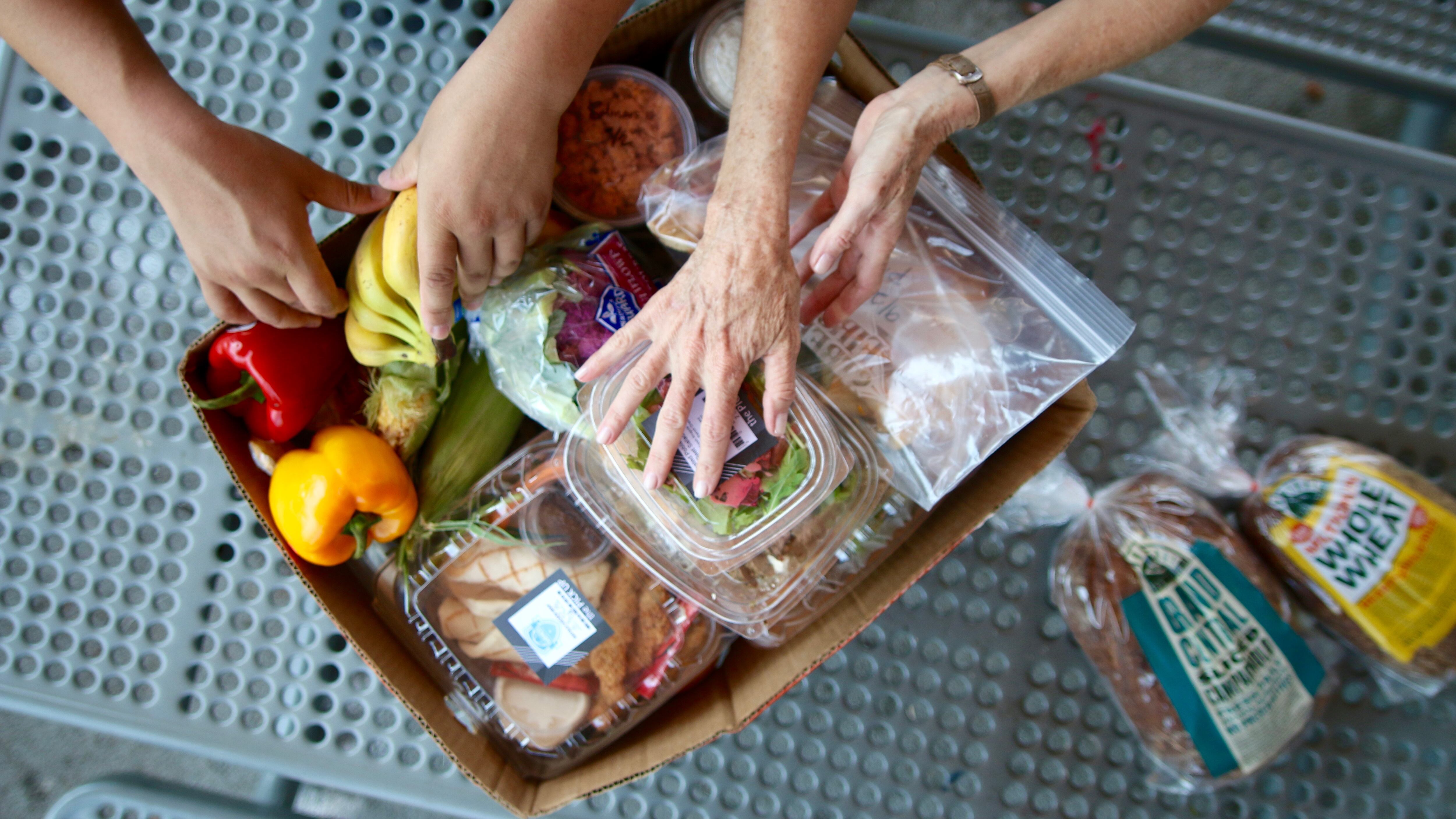COVID-19 has walloped the restaurant industry—that's widely known.
But the closures and cutbacks are creating problems for another service that hasn't received as much attention: providing food to people in need.
Urban Gleaners, a nonprofit that works to reduce food insecurity and waste in Multnomah and Washington counties, saw a 90% loss in donations at the start of the mandated shutdowns in March. That's because the organization receives the bulk of its food from restaurants, events and corporate campuses, which it then repackages and delivers free of charge.
With those avenues shut down, Urban Gleaners struggled to find new sources for donations, even as it saw demand increase.
"Food is hard to access and food costs have risen 50%," said Tracy Oseran, Urban Gleaner's founder and executive director, in a press release. "With continued loss of income, the need for free food is growing exponentially."
While donations have picked up, they're still nowhere at the level they were pre-pandemic, and the nonprofit is asking people to give if they can, either financially or with groceries.
Beyond reaching out to new sources, Urban Gleaners has also had to find new ways to get food to the individuals who need it, since it lost access to most of its public distribution sites. Organizers have now established a delivery schedule at apartment complexes, schools and even parks, where anyone can pick up food for free, no questions asked.
Meanwhile, a number of businesses have stepped up on their own to try to address the hunger crisis.
The husband-and-wife team behind Leikam Brewing, Portland's first kosher brewery, have decided not to reopen their Mount Tabor neighborhood taproom, even though they could once Multnomah County moved into Phase 1 of the state's reopening plan. Instead, the former Thai restaurant is essentially being used as a warehouse for food donations.
Dry goods are stored in the taproom, while perishable items are staying cool in the refrigerators on the premises. The couple are also using their brewery's vehicles to deliver that food. By working with Equitable Giving Circle, they're helping feed 385 families a week across Portland.
Related: In Just Eight Weeks, the Nonprofit Equitable Giving Circle Raised Enough Money to Feed 400 BIPOC Families for Free.
